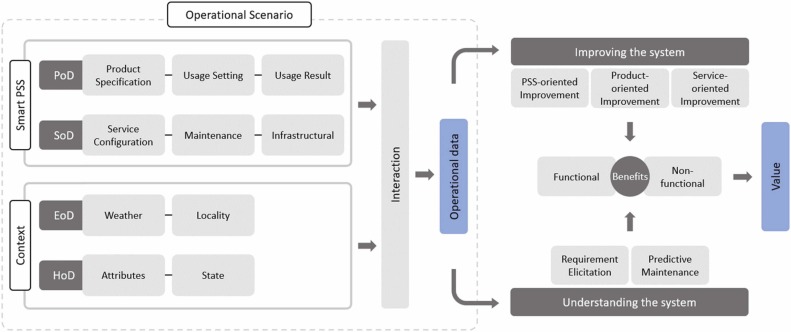
Data-driven value creation in Smart Product-Service System design: State-of-the-art and research directions
- Post by: Raj Machchhar
- 31st January 2022
- No Comment
Abstract
The emergence of IoT has propelled the traditionally known Product-Service System (PSS) to be characterized by smarter technologies, enabling them to collect and process data from the operational stage and facilitate communication between the customer and the provider. Commonly referred to as Smart Product-Service Systems (Smart PSS), these systems promise to create value at a personal level by collecting and effectively utilizing the operational data. However, one of the fundamental challenges is the lack of awareness as to what kind of data can be collected from the operational stage and what can be achieved from this data. This paper systematically reviews scientific literature to underline the kind of data being collected from the operational stage, the purposes being achieved from that data, and how they lead to value creation. The systematic review of 60 representative studies enabled the definition of the operational scenario that comprises 4 dimensions of data and 10 classes of data within these dimensions to generically identify what kind of data is being collected. The intend presented by various authors led to the generalization of 5 themes that target different purposes of collecting data. Further, the papers were classified with regards to functional or non-functional requirements to see how data in different approaches are leveraged for value creation. Finally, the discussion highlights the current gaps in the literature and raises several opportunities for future contributions.
Keywords
Operational data, Value creation, Smart Product-Service, System, Operational context, Systematic Literature Review
Citation
Machchhar, R.J., Toller, C.N.K., Bertoni, A., Bertoni, M., 2022. Data-driven value creation in Smart Product-Service System design: State-of-the-art and research directions. Computers in Industry 137, 103606. https://doi.org/10.1016/j.compind.2022.103606
Download
http://urn.kb.se/resolve?urn=urn%3Anbn%3Ase%3Abth-22567
